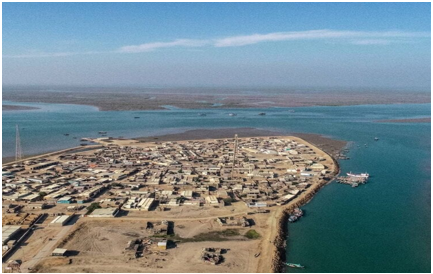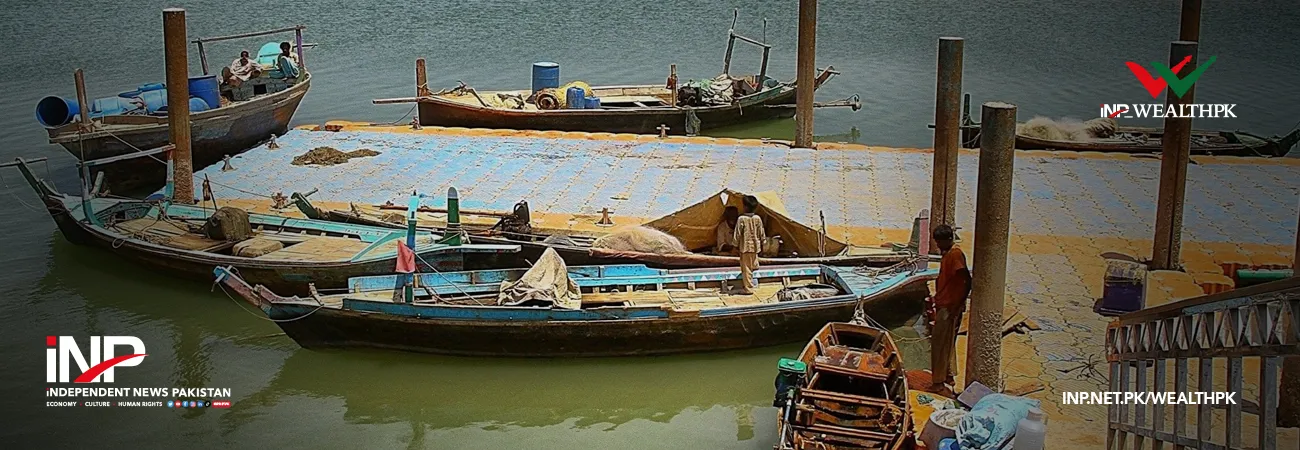INP-WealthPk
Ahmed Khan Malik
Keti Bandar — a historic port town nestled in the Indus River Delta of Sindh — has a huge potential, which can be exploited through strategic investment and development to transform Pakistan’s maritime, energy, and trade sectors, reports WealthPK.
Keti Bandar — once a thriving hub of commerce — is now at the center of renewed efforts by both provincial and federal governments to revive its strategic importance and integrate it into the national development frameworks.
Historically, this town served as a vital seaport facilitating trade along routes extending to Bombay, Madras, the Persian Gulf, and beyond. Its prominence waned due to infrastructural neglect and environmental challenges, including reduced freshwater flow from the Indus River, which led to agricultural decline and depopulation.

Despite these setbacks, the town's location near the Arabian Sea and proximity to the Thar coal reserves position it as a linchpin for future economic endeavors.
Syed Owais Shah, Director of Planning at Sindh Coastal Development Authority, told WealthPK that the recent collaborative efforts between the Sindh and federal governments aim to rejuvenate Keti Bandar's infrastructure and economic viability, as plans are underway to establish a modern seaport in the town, enhancing its capacity to handle exports, particularly of Thar coal and other commodities.
Besides, the Keti Bandar Power Project is poised to harness Thar coal for electricity generation, addressing energy deficits and fostering industrial growth. Besides, the Sindh Coastal Highway project aims to link Keti Bandar with major trade routes, facilitating efficient transportation of goods and stimulating regional development.
Shah said revitalizing Keti Bandar is expected to yield multifaceted benefits, as a functional port would alleviate pressure on the existing ports, diversify trade routes, and enhance Pakistan's maritime logistics. Infrastructure and energy projects are expected to create numerous jobs, uplifting local communities and reducing urban migration.
Efforts are also underway to combat sea intrusion and restore mangrove forests to preserve ecological balance and protect coastal livelihoods, he said.However, Shah said all these projects need domestic and foreign investment, for which the provincial government is working hard. He said the investment required for Keti Bandar was too huge to be arranged by the provincial government.
Naveed Ghumro, an expert on coastal economy, said the provincial government’s plans are fine but first of all, this area needs to be provided with the basic facilities. He pointed out that a major problem was shortage of sweet and clean drinking water, which forced the residents to travel long distances for water, spend significant portions of their income on it, and rely on wells and other less reliable sources.
He said Keti Bandar is experiencing the effects of climate change, such as the rising sea levels, land erosion, and decrease in freshwater availability for agriculture, impacting various aspects of life. Limited access to roads, damaged infrastructure, and lack of resources in health facilities contribute to healthcare challenges and disease spread.
Credit: INP-WealthPk













